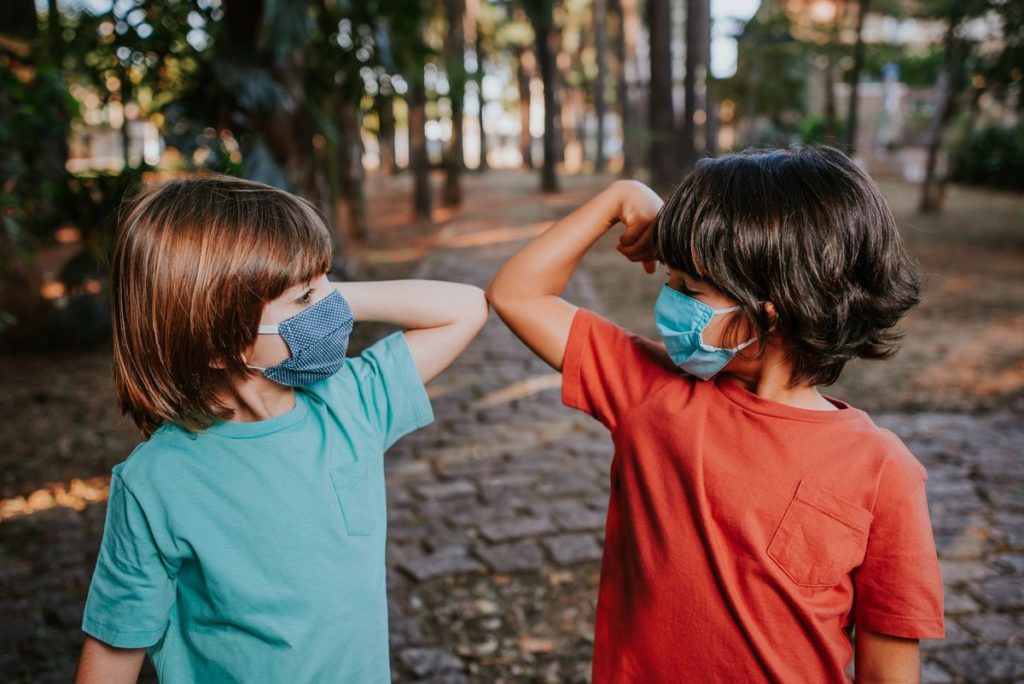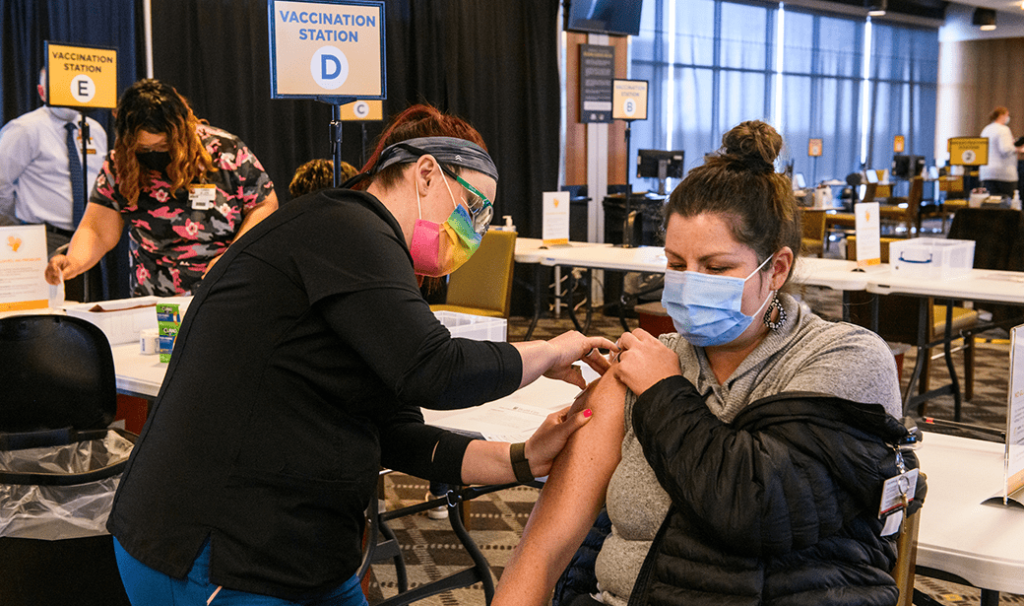COVID & Families: Safety Concerns at Home, Vaccination & Summer Travel

Hey, ya’ll! We’re starting to dabble in the world of IG Live… if you missed our interview with pediatrician and mom Dr. Mona Amin of @PedsDocTalk, you can watch the conversation on our IG page. The full Q&A is roughly one hour, so if you don’t have the time, here are the highlights:
Jump Ahead to:
- On COVID and Children
- On What To Do If Someone In Your Home Is Diagnosed with COVID
- On Getting Vaccinated
- On How to Live After You’re Vaccinated
- On Travel
On COVID, Kids and Parenting this Summer
- Because they are the least affected age group [insert whopping sigh of relief], this pandemic has been characterized by a lack of information on children — and thus, a lack of info for parents;
- Health guidelines from the CDC and elsewhere are directed toward adults;
- The data/information is constantly changing, BUT children are generally at much lower risk for severe illness — *this doesn’t mean they can’t become ill, but it is the generalization.

On What To Do If Someone In Your Home Is Diagnosed with Coronavirus:
- Every unvaccinated person in the home should be considered exposed — and needs to quarantine for 10 days from the last possible point of exposure;
- The goal is to reduce risk for every exposed individual by reducing in-home spread to the extent that you are able:
- *Layer as many protective measures as you possibly can, but know that everyone’s situation/space/circumstances are different (see here for the specifics on this);
- Follow local regulations for quarantine/testing;
- Check with your child’s school/day care about testing protocols for their return after exposure or illness.
Exposure = 15 or more minutes in a 24-hour period with someone who’s infected with COVID
On Getting the Vaccine:
- Do it! These vaccines are great! They work! They are safe! They are phenomenal!
- If you’re pregnant:
- pregnant women who’ve received the vaccines have had great outcomes and there have not been increases in miscarriage rates
- Although it’s preliminary data, we’re starting to see benefits for babies born to mothers who received the vaccine (i.e., babies born with antibodies)
Adult vaccination helps protect kids.The more adults that get vaccinated, the fewer places the virus can go — which in turn means we can protect our children even before we vaccinate them!

Parents: On How to Live After You’re Vaccinated
- You still need to follow local regulations, like masking in public;
- If you have a COVID exposure (see above), you can consider yourself “exempt”;
- You can meet in small groups with other unvaccinated individuals;
- **Obviously children are unvaccinated — if you’re visiting with other families, you need to talk about the risks:
- Are there any high risk children? (This is broadly defined, but: are there any children with medical conditions, namely neurological/genetic conditions that impede children’s breathing?; also, children under 1 have a slightly higher risk of hospitalization, probably b/c they have weaker immune systems — though, they do generally still have okay outcomes.)
- Should children wear masks?
- This is a personal choice — it depends on your level of comfort and the circumstances.
Being outdoors is a layer of protection in and of itself — merely being outside reduces the risk of transmission.
On Family Travel with Children During the Pandemic
Cue to ~22:30 min to hear Dr. Mona speak about her family’s take on visiting with other vaccinated families; and cue to ~29 min to listen to Dr. Mona explain her own family’s travel plans this spring
“The person who is most concerned about COVID exposure should get to have the biggest say.” ~Dr. Mona
*If your child has a medical condition, talk to your pediatrician.

If you have otherwise healthy children:
- More important than the to and from of travel itself is… what are you going to do/who are you going to see when you arrive — are you visiting a couple/few vaccinated people, or are you going to be around a lot of people/crowds, unmasked, etc.? The biggest risk is (still) to anyone you might be visiting who is older and unvaccinated;
- Think about what you’re comfortable with in terms of risk, understanding that travel does implicitly increase your risk;
- Airplanes are not much of a concern (due to HEPA filters) — as long as airlines continue to institute mask mandates.
[Note: At the time of our interview, the CDC was still not advising any unnecessary travel for vaccinated individuals, but as of 4/2 the new CDC guidelines allow for domestic travel among fully vaccinated individuals.]
This pandemic is not over. It’s real — even if you are vaccinated. ~Dr. Mona
How Scared Should We Be of Our Kids Getting Covid?
- The risk a child will contract COVID is getting better (aka going down) everyday — because of vaccination;
- It’s important to keep wearing masks regardless;
- We don’t yet have enough information on how variants are playing out in the pediatric population, but what we do have suggests they may be causing even milder illness in children .
At this moment, there is so much to be optimistic about, but we do still need to take this pandemic seriously and employ the simple precautions we know work (did we mention masks?!), and we also need to continue to be aware of the situation, talk openly and honestly with others, and be respectful.